Description
Kawane Tsuyuhikari Asamushi Sencha (川根町つゆひかり浅蒸し煎茶) is a high grade sencha from the famous Kawane Honcho mountainous terroir of Shizuoka Prefecture in Japan, located in the upper reaches of the Ōi River. Made from the rare and unusual Tsuyuhikari (つゆひかり) cultivar, it undergoes careful processing and a shorter asamushi steaming process, resulting in a fine neat leaf that is more intact. It produces a balanced sweet and savoury liquor with rich notes of grass and seaweed. This tea was harvested in mid April 2023. We source it via a specialist refining factory in Shizuoka who work directly with the farmers. They provide end processing and refining at their small factory in Shizuoka but also support smaller farmers in distributing their teas, developing new tea types and improving their techniques.
This is one the three sencha teas in our shop that showcase the three famous mountainous terroirs of Shizuoka Prefecture: Honyama, Kawane and Tenryu.
Kawane is a famous mountainous tea producing region, stretching up the steep mountainsides around the Ōi River in Shizuoka. The teas from this area are also known as Kawane-cha in Japan. Kawane is located between the other two famous tea regions of Shizuoka – Tenryu to the West and Honyama to the East. This larger region presents a rugged mountainous terrain that is cut through by numerous rivers and sees abundant rainfall. The conditions mean that the tea fields are often shrouded in fog and mist, especially in the spring months. This results in less exposure to the sun and acts as a natural way to slow down the growth of the tea plants, leading to a richer and more fully flavoured tea. Additionally, being an earlier spring tea, it benefits from the cooler spring climate and slower leaf growth. This again contributes to the complexity of flavour.
Although Tsuyuhikari (つゆひかり) cultivar is not well-known, it is becoming a little more popular, especially around Shizuoka. The plants are more resistant to frost, making them easier to grow in the more northern areas as well as at slightly higher altitudes. These plants are also more resistant to some diseases and exhibit fast growth, making their harvest a few days earlier than the ever-present Yabukita plants. The characteristic umami flavour and good liquor colour make this cultivar quite attractive for producing sencha as well as deep steamed fukamushi teas.
This Kawane Tsuyuhikari Asamushi Sencha, like most of Japanese green teas, is steamed rather than pan roasted. However it is a little more special as it undergoes a shorter steaming processes, referred to as light steaming. In Japanese, asamushi (浅蒸し) means light steamed as the tea undergoes steaming for less than 30 seconds as opposed to the usual futsuumushi (普通蒸し) steaming, which is 30 seconds to 1 minute. There is also a deep steamed version called fukamushi (深蒸し), our Ariake Fukamushi Sencha being a prime example. The length of steaming has a direct correlation to the size of the leaf in the finished tea. The longer the steaming process, the fine and smaller the resulting dry leaf is. Hence fukamushi teas tend to have a very fine, small leaf. Conversely asamushi teas will retain a larger, more intact leaf.
As expected from an asamushi sencha, it has very fine, long slender leaves that have a polished appearance with a vibrant dark green colour. It produces a bright and clear yellow-green liquor that is quite aromatic, with vegetal and savoury aroma. The predominately savoury, umami taste has pronounced grassy and seaweed notes. A sweet undercurrent brings great balance to the flavour. This Tsuyuhikari Sencha has a coating, thick mouthfeel that gives way to a lasting savoury aftertaste with just a touch of dryness. The overall taste is quite rich, but nicely balanced. The interplay between sweetness and umami makes us think of flavours more usually associated with gyokuro.
We suggest brewing at 70°C for 1-2 minutes according to your taste. It can be brewed around 2+ times depending on your taste preferences. This tea will perform at its best if brewed using a good traditional side-handled kyūsu (急須) tea pot specifically designed for brewing sencha tea. In such case, adjust the amount of leaves to 3g per 120ml of 60-70°C water, brewing 60-90 seconds per infusion, slowly increasing brewing time until there is no flavour left.

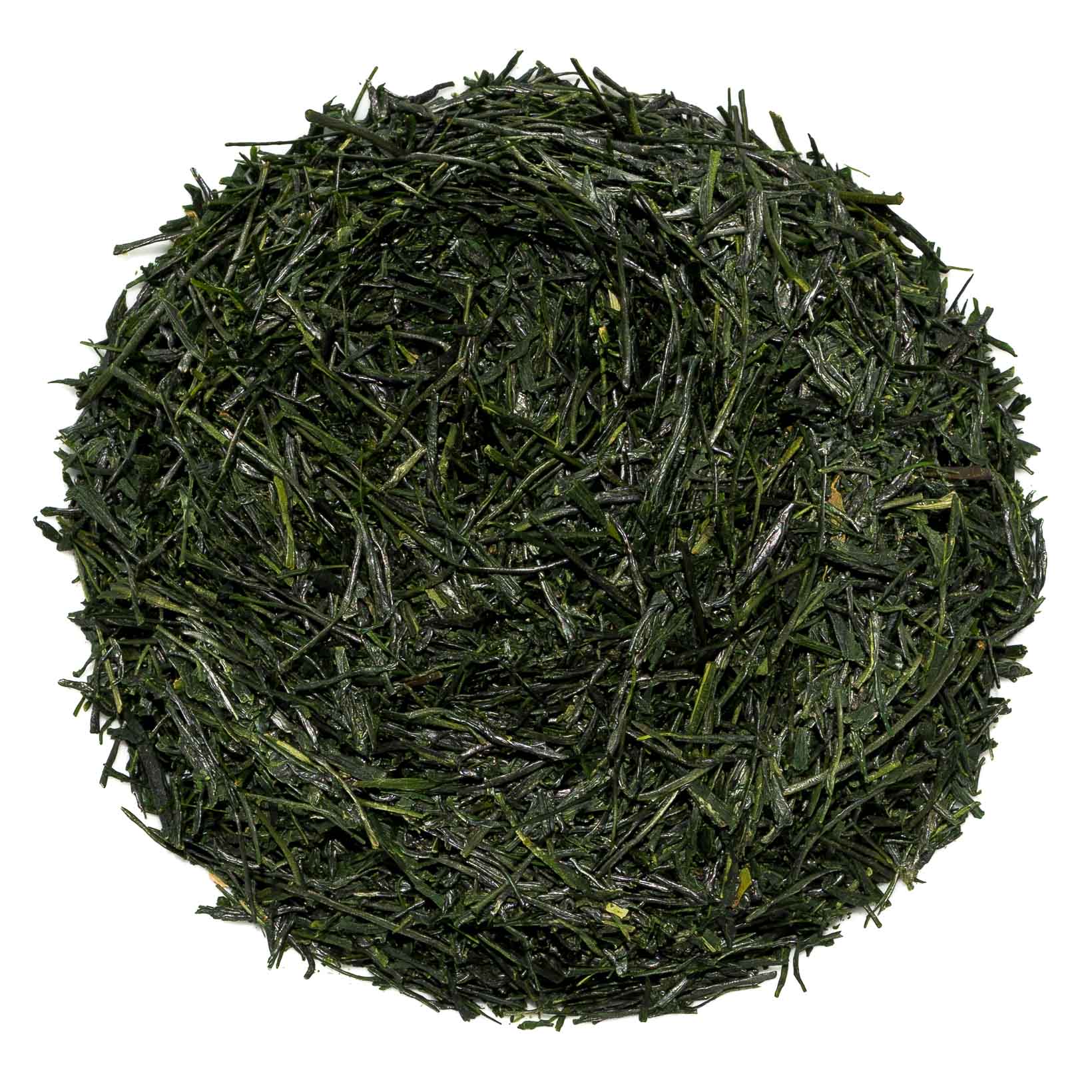
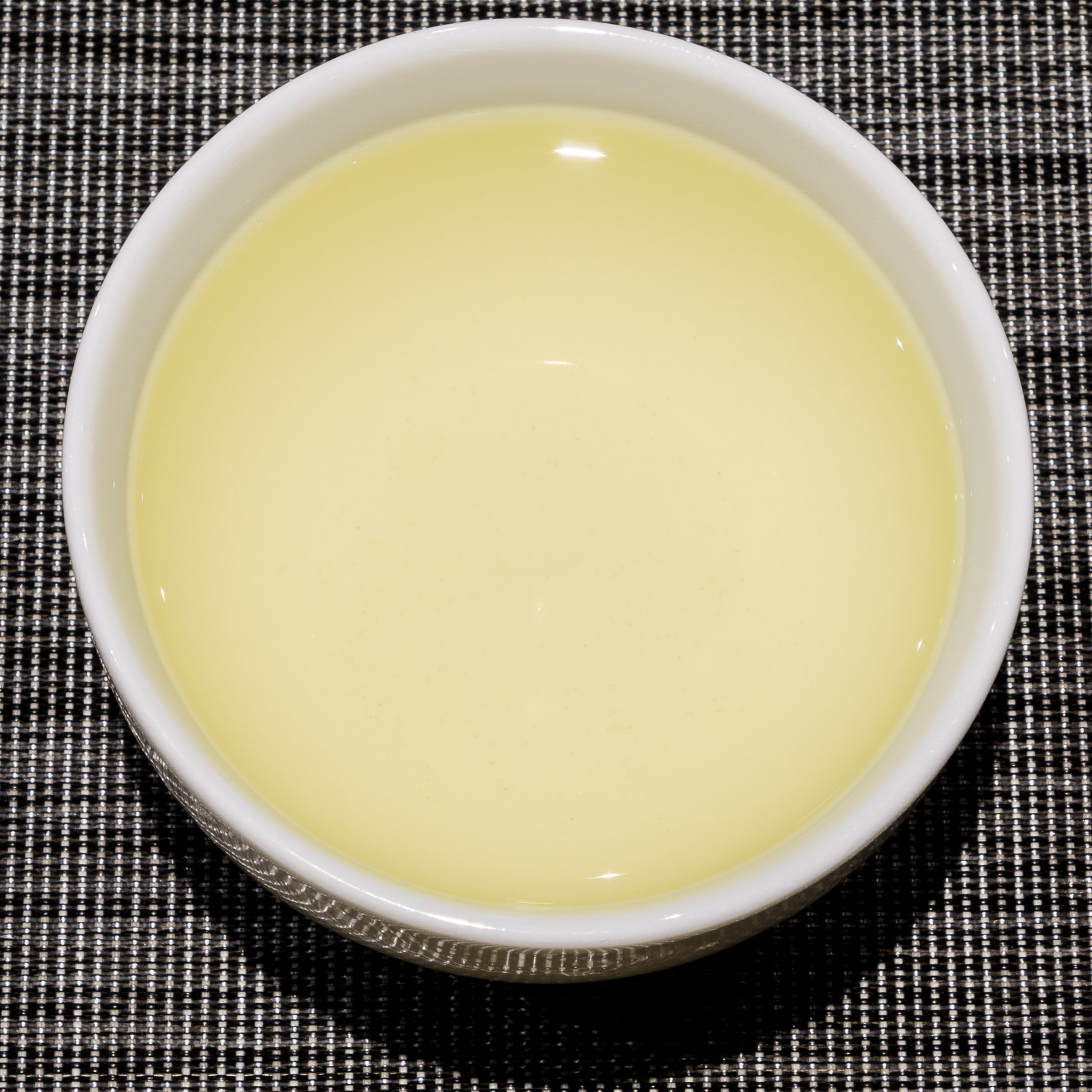
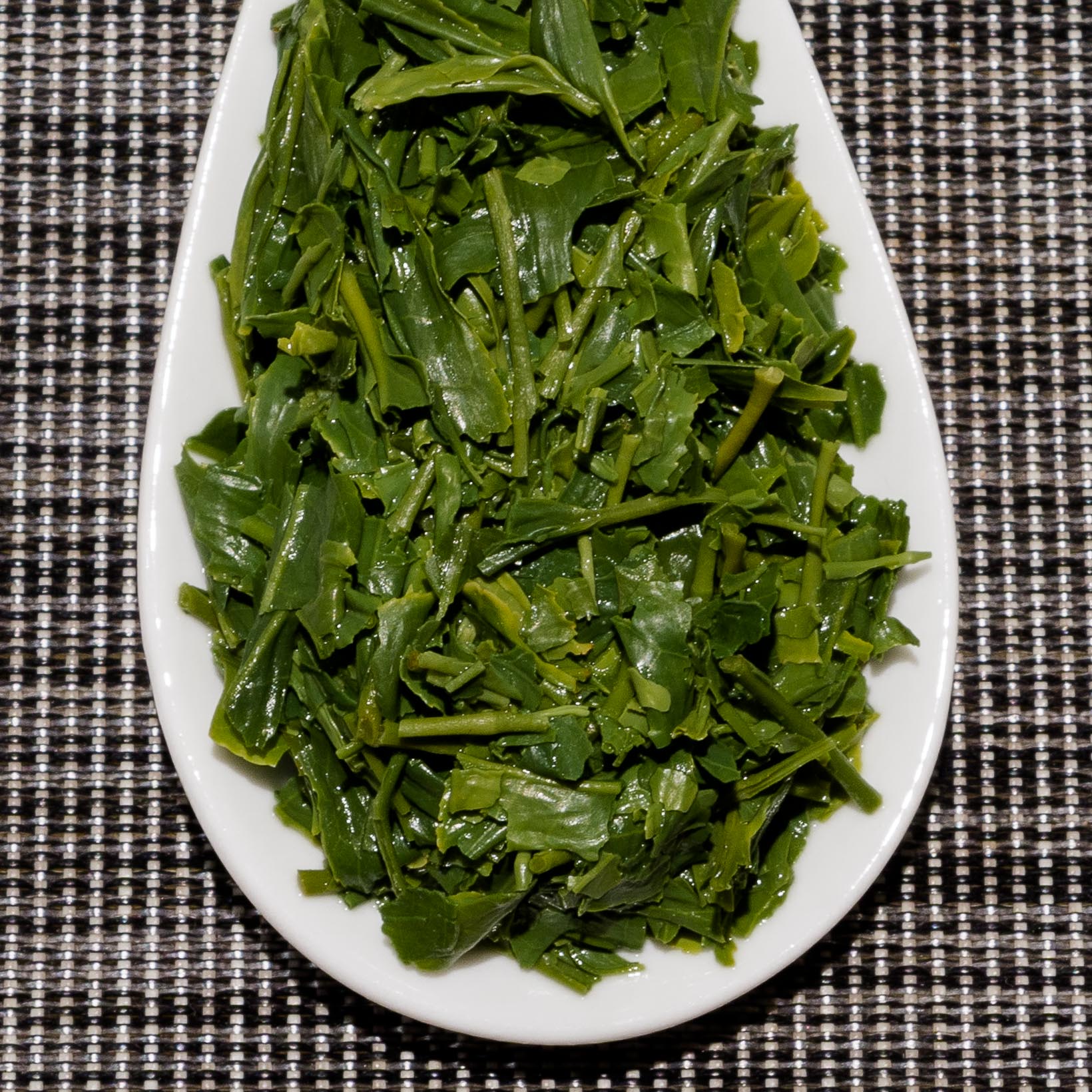
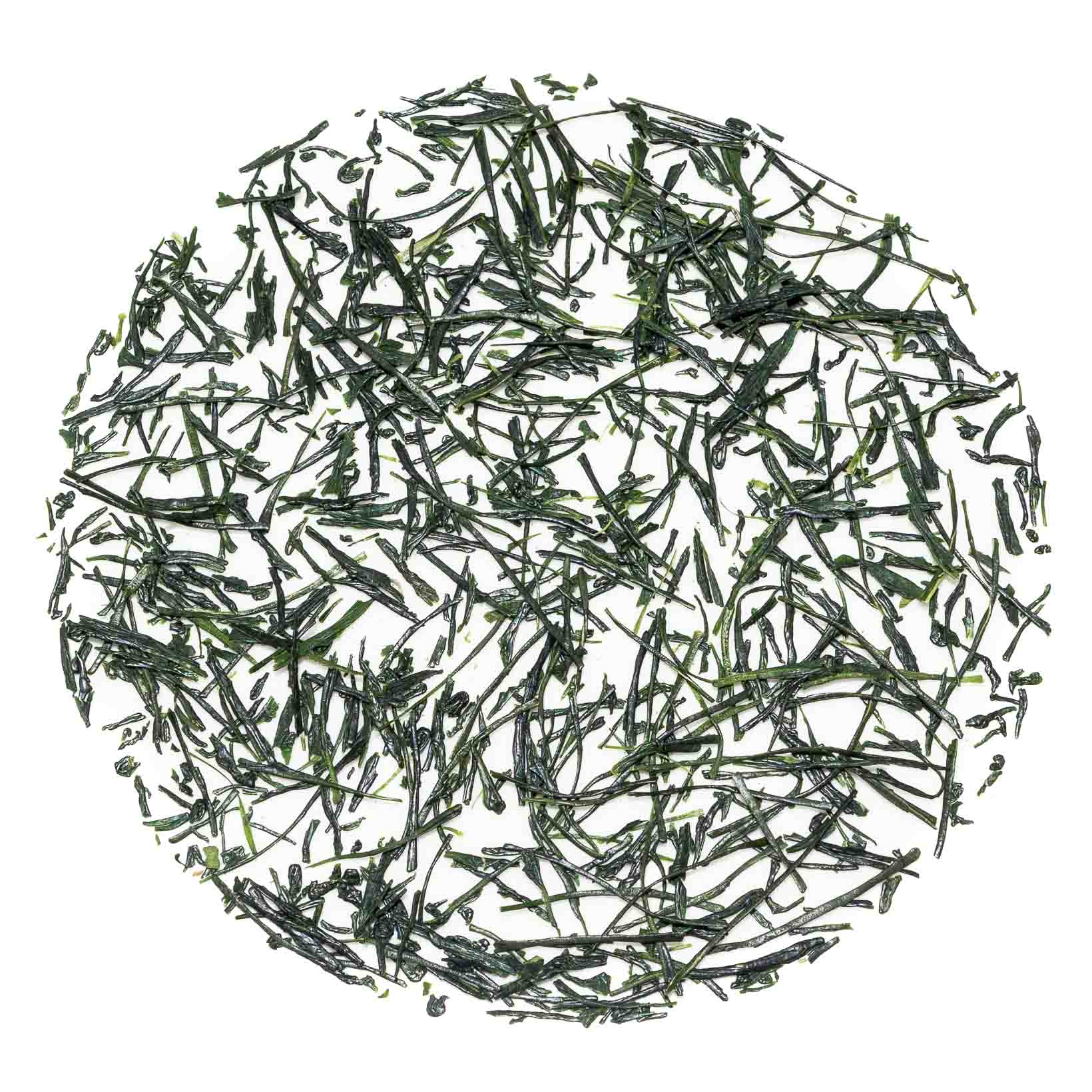
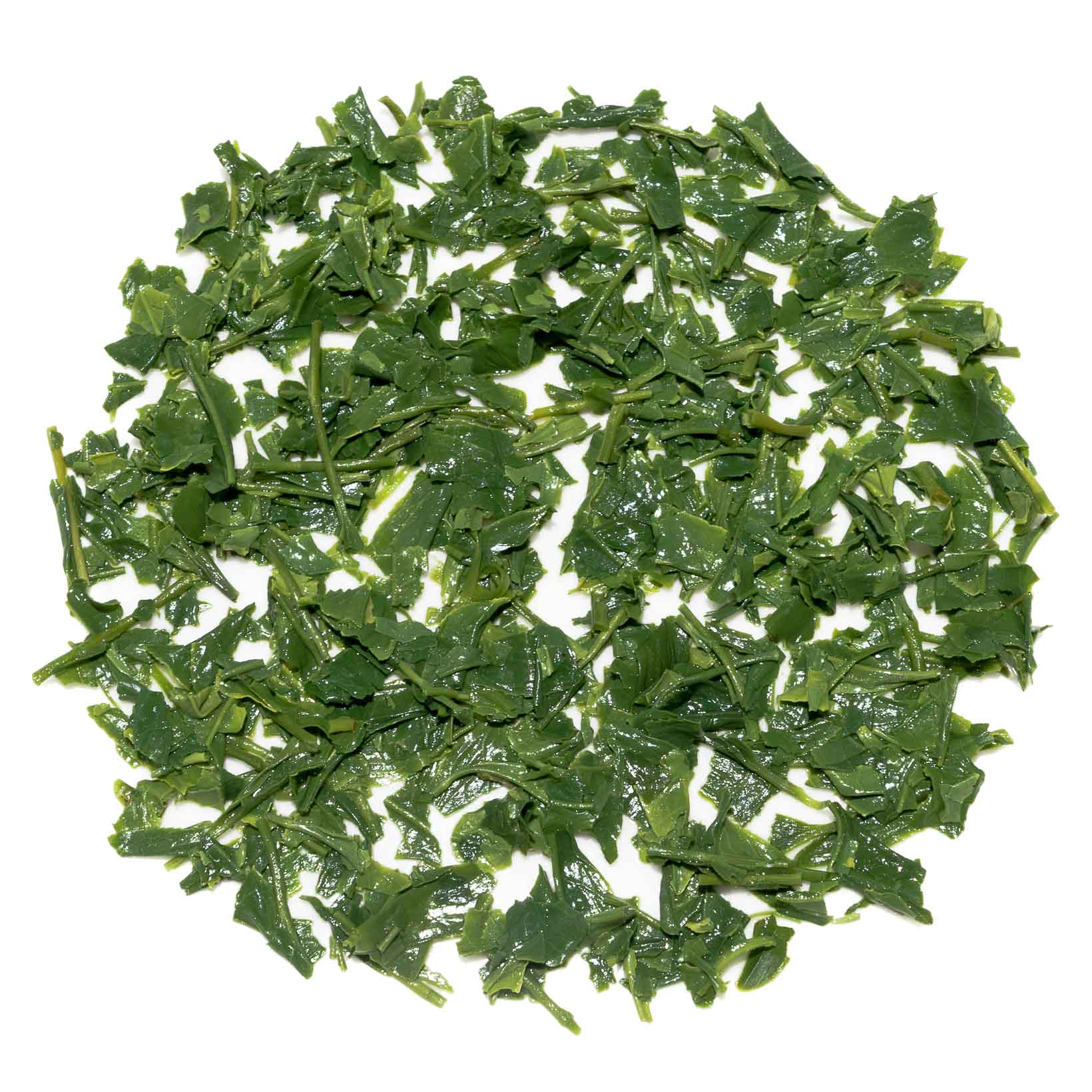
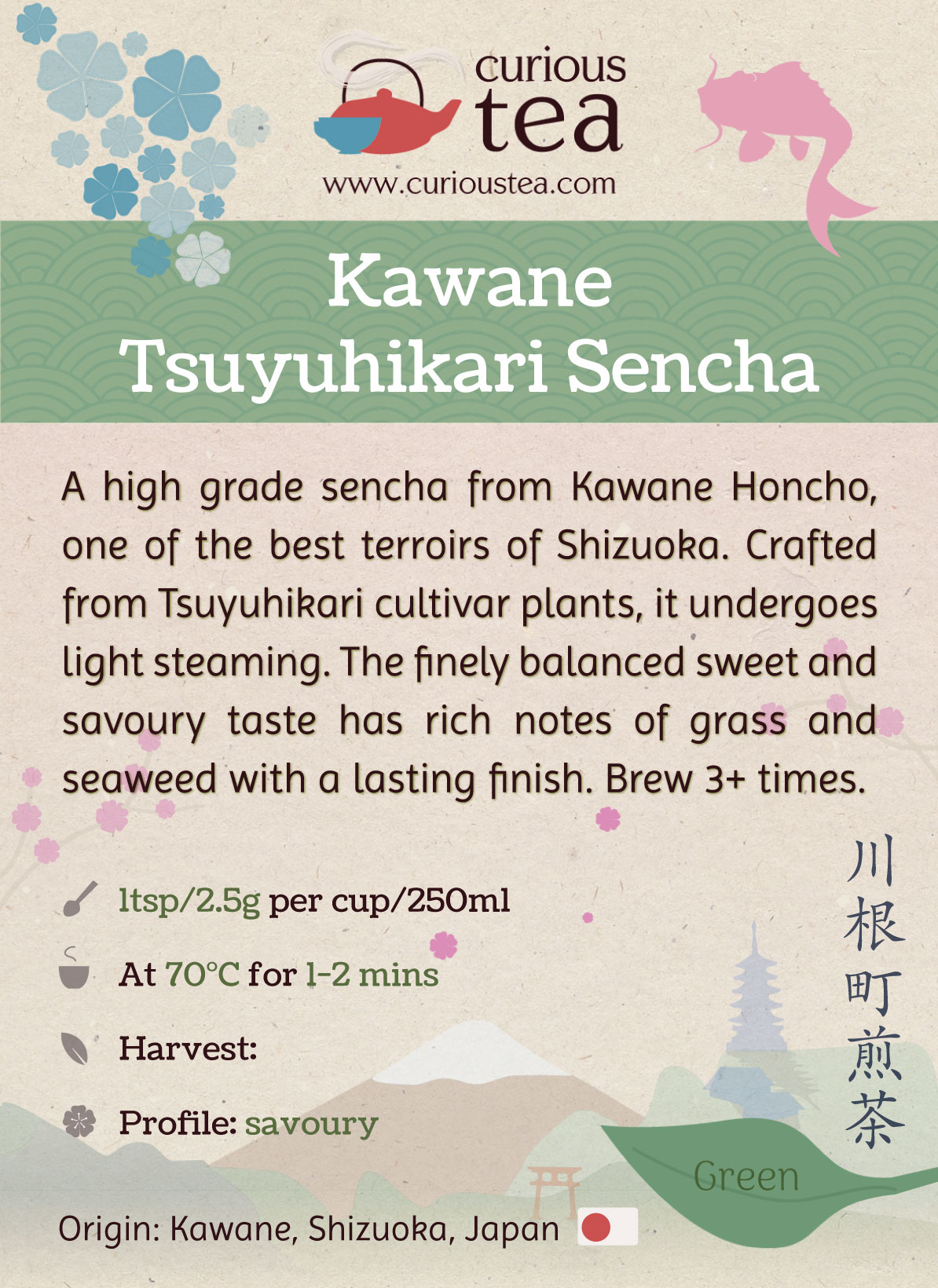

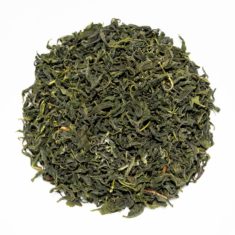 Korean Green
Korean Green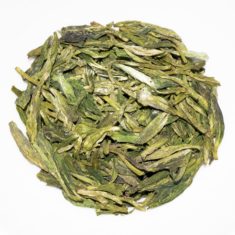 Chinese Green
Chinese Green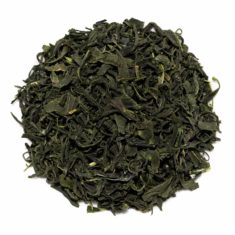 Korean Green
Korean Green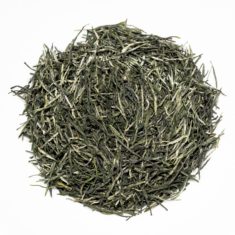 Chinese Green
Chinese Green